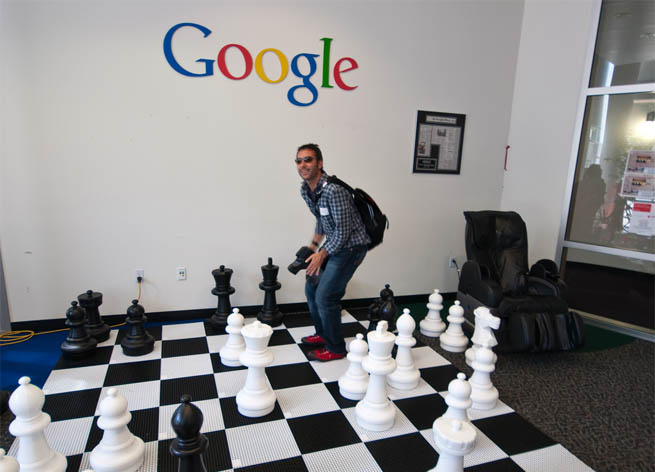
Let’s face it, apps are the new sexy. They’re an easy path to success, right?
With companies like Instagram being purchased for $1 billion, everyone hopes their application is going to become the next big hit. But with the hundreds of thousands of apps on the market, only a few are going to be huge successes.
This is where platform choice becomes critical. Having reliable vendors, massive distribution channels, and the ability to rapidly bring products to market sounds like a gift from the startup gods. At the same time, relying too much on a single vendor, a single distribution channel or a single product can make it difficult to both scale and stay successful. The platform you choose may determine the fate of your business. Instead of relying upon OPP (other people’s platforms), why not build, control, and own your own?
Entrapment by the “Gang of Four”
In the book, The Age of the Platform: How Amazon, Apple, Facebook, and Google Have Redefined Business, author Phil Simon explains how the “Gang of Four” are leveraging their platforms to succeed, making thousands of other businesses and millions of consumers reliant on them in the process. Few talk about the Internet without talking about these platforms.
- Amazon: Amazon’s platform powers some of the largest websites. When you hear of a problem with AWS (Amazon Web Services), you hear about major websites going down, from established giants like Netflix to growing startups like Quora. There are certainly advantages to allowing Amazon to do the heavy lifting for your business, but becoming too heavily invested in a single provider creates other issues, such as vulnerability to their terms, pricing, technological changes, and downtime. That’s why companies like Twitter and Zynga are increasing investment in their own data centers to support their mission-critical operations and limit exposure to OPP.
- Apple: Many online businesses also use their vendor as their primary distribution channel, creating increased platform risk. If Apple decides to change its rules for apps, your business may suddenly be at risk if the company rejects your feature. Or, it may decide to incorporate your feature into its platform — suddenly, your business is obsolete.
- Facebook: With Facebook updating its policies and updating its layout regularly, it’s becoming harder to adapt to the evolving platform changes. Again, Zynga is expanding outside Facebook to further reduce its reliance on OPP. Like Apple, Facebook takes a 70/30 split on sales through its platform, but 30 percent is significantly more than the 2-4 percent in processing fees you’d pay if selling through your own website.
- Google: Everyone wants to be at the top of Google’s search results because it’s free advertising. To a small business, that free advertising can be a significant driver of revenue. However, being too heavily reliant on Google can be devastating when it makes an algorithm change — just ask the small businesses who were affected by the recent Penguin algorithm update.
Why Digg failed
When I asked Phil Simon about Digg, he said, “I wouldn’t say that Digg failed ‘as a platform’ because I’m not entirely convinced that it ever was one. They made two fundamental mistakes: their improvements weren’t innovative enough, and companies like Twitter and Facebook more or less co-opted Digg. In 2004, the idea of doing one thing on one site made sense; but in the Age of the Platform, people no longer want to use single-purpose sites as much as all-encompassing platforms.”
Digg never became a critical tool in the arsenal of its customers in the same way the Gang of Four have. It wasn’t a platform customers relied upon for critical needs, and so its disappearance caused no pain to anyone but its VCs.
Why Instagram was different
While Instagram leveraged the Gang of Four, it became its own social platform in the process, with people relying on it to power their photo sharing experiences. Certainly Instagram’s growth wouldn’t have been as explosive if it wasn’t for OPP, but it still controlled its own destiny and caused a rushed acquisition to thwart the hugh threat to Facebook.
You don’t need to build a massive global platform to succeed, but you will need to do two things: limit your exposure to OPP, and become your own platform.
Your website, your platform
Unfortunately, small businesses still have the mentality that a website is just for marketing, when in fact, your website can become a vital tool in your arsenal and serve as the launching platform to scale your business while limiting exposure to OPP. But if your website is not a critical part of your operation, then it’s not a platform and can’t be sufficiently leveraged to scale your business — yet.
Regardless of how popular OPP become, your website can be the platform upon which you can control your own destiny. With the least exposure to external forces, ultimately, your website can be the foundation upon which you build all other services — including mobile applications. Plus, wouldn’t it be cool to have people build on top of your platform, and make it so they can’t survive without it?
Take the first step: define the critical operations of your business, then start planning a website platform around them.
Mark Cenicola is the President and CEO BannerView.com and the author of “The Banner Brand: Small Business Success Comes from a BannerBrand, Build it on a Budget.”
The Young Entrepreneur Council (YEC) is an invite-only nonprofit organization composed of the world’s most promising young entrepreneurs. The YEC recently published #FixYoungAmerica: How to Rebuild Our Economy and Put Young Americans Back to Work (for Good), a book of 30+ proven solutions to help end youth unemployment.
Image via kirainet/Flickr

